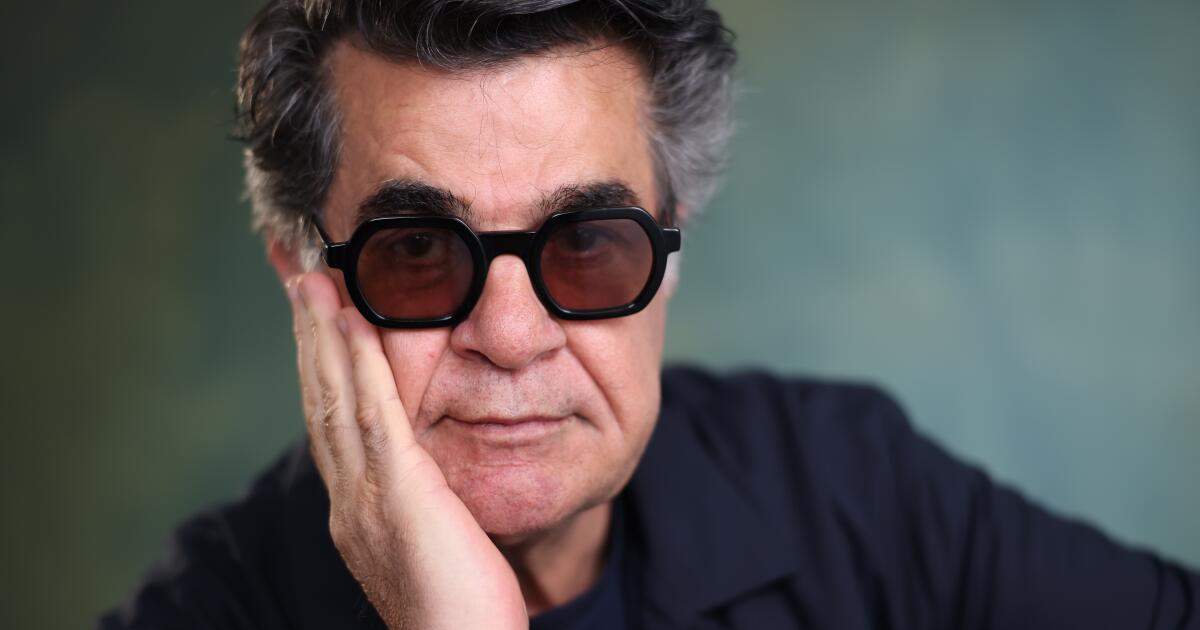p]:text-cms-story-body-color-text clearfix”>
As a child born in a working-class neighborhood in south Tehran, future director Jafar Panahi would save all the pocket change his father gave him so he could go to the movies. Yet it was a role in front of the camera that positioned him to become one of the most acclaimed and fearless filmmakers in the world.
A self-described “chunky kid” growing up in pre-Islamic Revolution times, Panahi was cast due to his build in a short film produced by Iran’s Institute for the Intellectual Development of Children and Young Adults. The educational piece required two children, one heavyset and one thin. While shooting his scenes at a local library, he was enticed by the camera.
“Unfortunately, there was a very stingy cameraman who would not let me get behind the camera,” Panahi says via an interpreter at a hotel in Santa Monica. “And this became my biggest wish, to see the world through the camera.”
Panahi, 65, has since had plenty of opportunities to fulfill his childhood dream, even if it has jeopardized his freedoms due to Iran’s theocratic regime. (He’s just landed in the U.S. after visa complications delayed his arrival to appear at multiple festivals.)
A victim of harsh repression tactics, Panahi has nonetheless continued to expose socially relevant themes in his native country including the treatment of women, the state’s constant surveillance of its citizens and the divide between economic classes. His bravery has resulted in jail sentences and severe restrictions on his ability to make movies.
A scene from Jafar Panahi’s movie “It Was Just an Accident.”
(Neon)
Today, his champions include director Martin Scorsese, who last week shared the stage with Panahi for a public conversation at the New York Film Festival, where the dissident artist’s latest movie, “It Was Just an Accident,” screened to a massive ovation. A morally layered political thriller arriving in theaters Wednesday, it follows a group of people who believe they have captured the man who tortured them while they were in prison.
In May, Panahi was knocked back in his seat after “It Was Just an Accident” won the Palme d’Or at the Cannes Film Festival — a kind of cosmic revenge against a government that has tried to silence him. The film, a co-production, is now France’s Oscar entry in the international feature race, since Iran itself would never consider submitting it.
Panahi is only the second Iranian filmmaker to win the Palme d’Or, the first being late director Abbas Kiarostami in 1997 for “Taste of Cherry.” When he was starting out, a young Panahi contacted Kiarostami, then shooting his 1994 film “Through the Olive Trees.” One day, Panahi recalls, Kiarostami drove him out of the city and asked him to wear a blindfold.
They eventually arrived at a point where Kiarostami captured a pivotal shot in “Through the Olive Trees”: a young man and the girl he’s been chasing looking minuscule against a vast, hilly, green landscape. It was then that Panahi understood what defined Kiarostami’s vision and how it differed from his own.
“Anywhere we went after that, I noticed that Kiarostami would choose where he’s sitting in a way that he would be facing nature,” Panahi recalls. “But I always chose my seat in a way that I would be facing people. He saw people in long shots in nature. I saw them in close-ups.”
Panahi admired Kiarostami’s connection with the essential beauty of nature. He, meanwhile, would be fascinated by people’s behavior and interpersonal relationships within a society.
The Times sat down with Panahi to discuss his most notable films.

